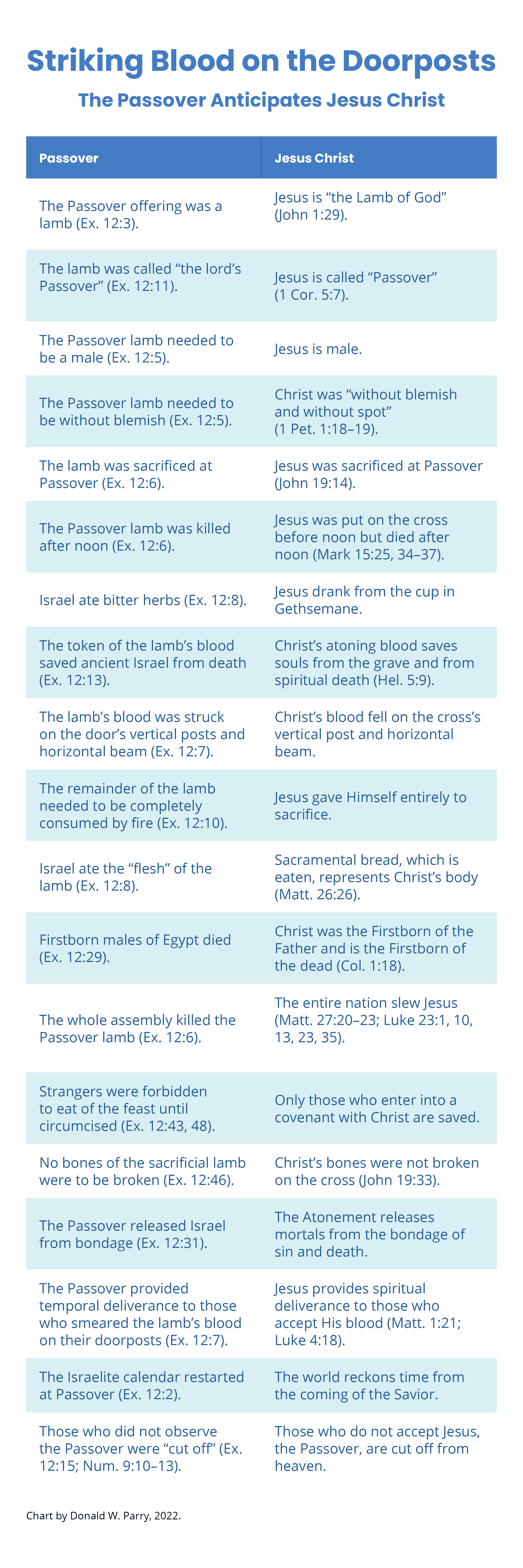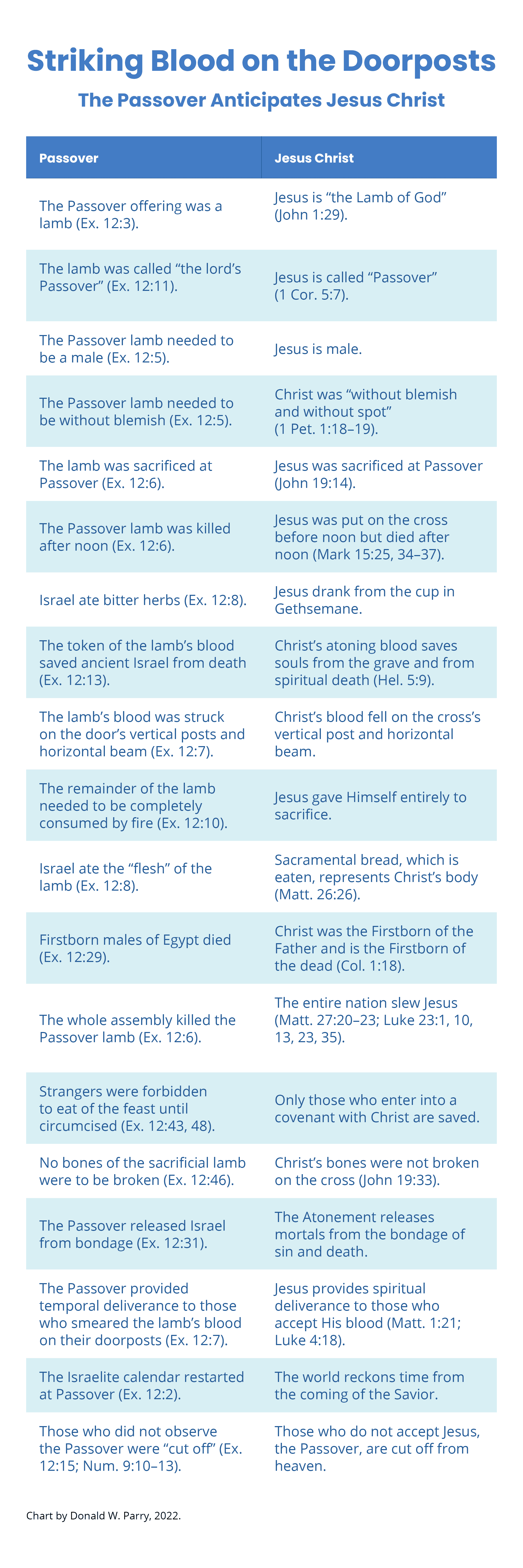
Share
Striking Blood on the Doorposts: The Passover Anticipates Jesus Christ

Title
Striking Blood on the Doorposts: The Passover Anticipates Jesus Christ
Publication Type
Chart
Year of Publication
2022
Authors
Parry, Donald W. (Primary)
Share
Abstract
Enacted annually during the Jewish month of Abib (which occurs around March or April), the Passover recalls the occasion when God’s destroying angel “passed over” the obedient of Israel. This feast, as prescribed in Exodus 12, points to Jesus Christ’s atoning sacrifice. The sacrificed Passover lamb (Ex. 12:3–6, 46) prefigured Jesus Christ, who became the Lamb sacrificed for the sins of the world. The lamb was to be without blemish (Ex. 12:5), just as Jesus Christ would be without blemish (1 Pet. 1:18–19), and the Passover lamb had to be a male (Ex. 12:5), perhaps prefiguring Jesus’s gender.
Further, the feast encompassed rituals and commandments that anticipated Jesus’s death on the cross—His blood would spill on the cross, He would be killed after noon, and a large assembly would kill Him. In fact, the correspondences between the Passover and Jesus Christ’s death are so notable that Paul named Jesus “Our Passover” (1 Cor. 5:7). John the Baptist proclaimed Him to be “the Lamb of God, which taketh away the sin of the world” (John 1:29).
On the night of the first Passover, Israelites ensured that the destroying angel would pass over them by placing the Passover lamb’s blood on their doorposts before the destruction of firstborn males (Ex. 12:22). The Passover lamb’s blood symbolizes Jesus’s blood, which saves us from everlasting destruction.
The Passover teaches us how one may act as a substitute for another, because the lamb served as a proxy for the Israelite family so that the destroying angel would pass over them. In other words, God did not require human blood from family members, such as the firstborn son; instead, the lamb’s blood, which was smeared on the doorposts on the night of the Passover, served as a proxy, similar to the way that Jesus Christ’s blood saves us from the destructive elements of death and sin. Of course, those who failed to smear the doorposts, such as the Egyptians or perhaps negligent or disobedient Israelites, were not protected from death because the lamb’s blood did not deliver them from the destroying angel.

Subject Keywords
Donald W. Parry
Bible
Exodus
Passover
Blood
Jesus Christ
Lamb
Sacrifice
Bibliographic Citation
Terms of use
Items in the BMC Archive are made publicly available for non-commercial, private use. Inclusion within the BMC Archive does not imply endorsement. Items do not represent the official views of The Church of Jesus Christ of Latter-day Saints or of Book of Mormon Central.